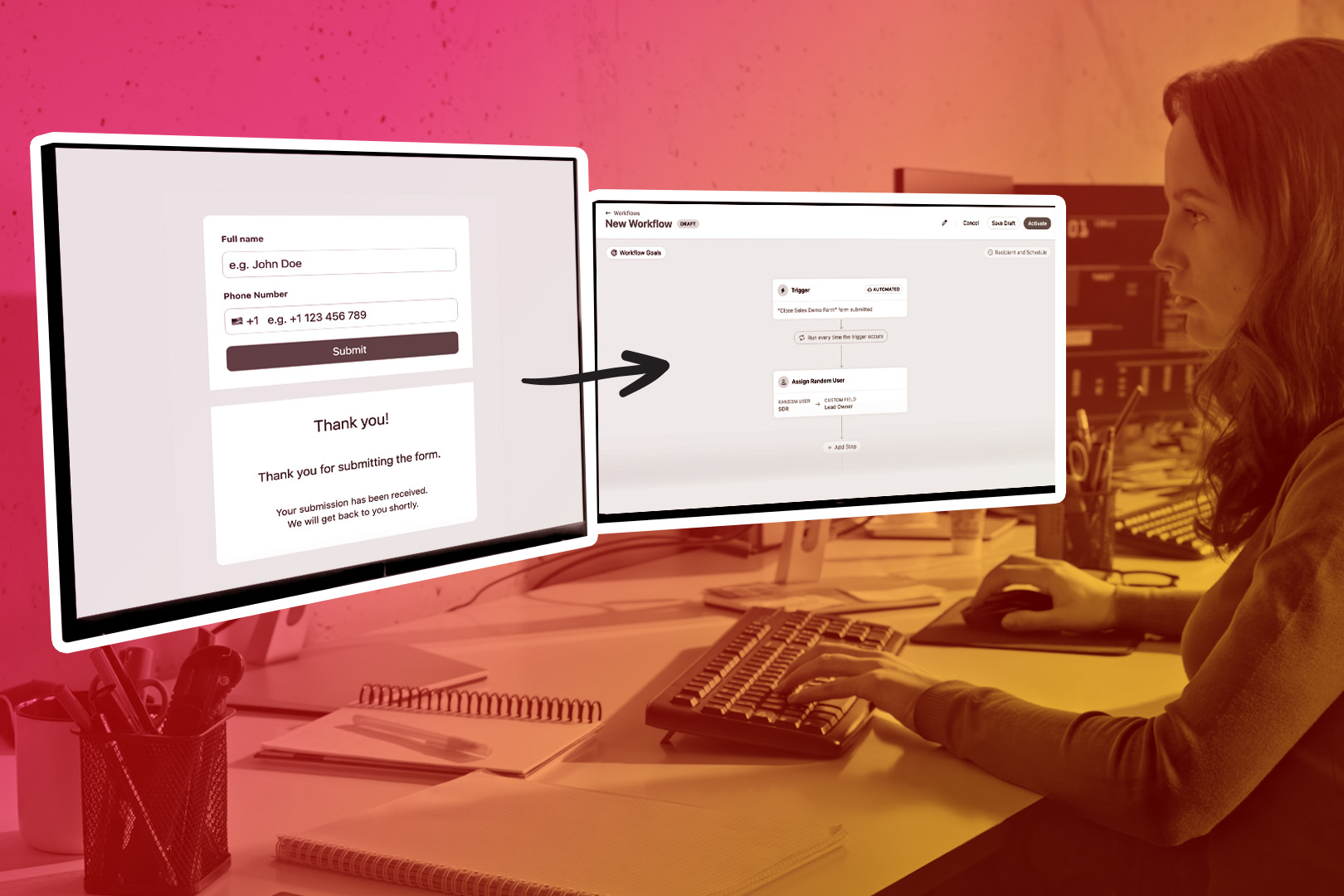In the past, we've covered how to qualify prospects in general, but qualifying for a demo is unique in some ways and crucial for improving your demo-win rates.
Why are qualifying demo attendees so important? It will help you understand which features to show your prospect and craft a product demonstration that connects with and excites them. You can map your product's benefits to your prospect's needs.
A survey of sales engineers emphasizes the importance of the discovery process in preparing compelling demos. It reveals that 66 percent of sales engineers frequently prepare insufficient demos that miss critical information due to a lack of insight into customer needs.
Up to 75 percent of their preparations experience this. Consequently, the demo can be delayed as engineers seek further clarification from customers, illustrating the substantial impact that thorough discovery can have on the sales process.
"A well prepared demo is obvious. It can be interrupted multiple times. It can be fast-forwarded and rewinded without flustering the speaker. It only shows off what the audience needs to see to come to a decision. It's fluid and flexible and — while it may have been obsessively rehearsed — it comes off as effortless." - Robert Falcone
How could you conduct a successful demo if you don't know their evaluation criteria?
Without qualifying, you can only deliver a one-size-fits-all demo. (If you've ever worn one-size-fits-all clothing, you know there's no such thing.)
Customize your product demos to your prospect's desired results to maximize your sales opportunities.
Researching Prospects Before Qualifying Them
Spending a couple of minutes (or more, if it's a crucial deal to your company) gathering some information about the prospect can help you gain more valuable insights when talking with them.
Learn about:
- Their customers: Through testimonials, case studies, and customer logos.
- Their team: Through about pages, LinkedIn profiles, and blog posts
- Their partners: They often display partnerships on the website
Another way of researching a company is looking them up on business research companies like Dunn & Bradstreet or Hoovers, but this won't be necessary for most startups.
When Should You Qualify Them?
It's best to qualify prospects before you even set the appointment for a demo. Assuming a prospect expressed interest in a demo, and you're on the phone with that person, say this:
"I want to make sure that we don't waste any of your time on a demo that doesn't answer your questions and provides you with the insights you need to make an informed decision. That's why I'm going to ask you a few questions about your interest in our software."
Then, proceed to ask questions.
(You can also dedicate the first couple of minutes of your demo to this. The reason why it's a good idea to do this in a separate conversation is that you might find out that you're not a good fit for this prospect, and then you save yourself and your prospect the time to schedule a demo that won't provide any value).
Know Your Audience
If multiple people are attending your demo, ask each one to introduce themselves. Three pieces of information are particularly useful to you:
- What's their job title?
- What's their main responsibility?
- What insights do they hope to gain from attending your demo?
Questions You Want Answered
Ideally, you want to create your own list of questions that work best for your sales needs, but here are some questions to get you started:
- Why is the prospect interested in your solution?
- Which objectives do they hope your product will help them achieve?
- Which problems do they hope your product will help them solve?
- How are they currently trying to achieve this?
- What do they like most about their current approach?
- What do they dislike most about their current approach?
- What do they want improved?
- Have they used a similar product in the past (or are they currently)?
- What other products are they evaluating?
- Who are the stakeholders involved in the deal?
- How do they feel about your product? What are their objectives, objections, wants, and needs?
- How are they evaluating your solution? Which KPIs do they want your product to push?
Formulating a set of questions is worth investing some time upfront.
Types of Questions
Open-ended questions: These are questions that require an answer that's more than just a "yes" or a "no." Most of your qualifying questions should be open-ended, as they tend to elicit the most insightful responses.
Closed questions: Closed questions can be answered with a yes or a no. During the qualification stage, they are most useful to ensure you've understood a prospect's statement correctly. Use them sparsely.
Why questions: Asking 'why' will reveal a prospect's beliefs and motivations. If a prospect tells you that they need to be able to split test email campaigns, you can ask them why that's important to them. This might yield insights into critical business issues that will play an important part in their decision-making process.

The types of questions you ask should also be targeted to the audience you're speaking to.
If you're demoing to end-users:
- What's their workweek like?
- What do they spend time on?
- What are the processes they repeatedly go through?
- Where are they frustrated with these processes?
- What do they want from a tool?
The answers to these questions can help you to match their workflows with your product's features whenever possible. This will help them to make a clear connection to your product and more vividly see how it applies to their jobs.
Generally, the questions you ask when you're speaking to end-users of your software should be more focused on tactical issues, whereas when you're talking with high-level executives, you want to focus on strategy.
Are their answers meaningful?
Sometimes, prospects will give you what I call apparent answers. A problem that's especially common among so-called "veteran" sales professionals is that they accept these answers.
Sales rep: "What do you hope to gain from using our software?"
Prospect: "We want to increase revenues."
Sales rep: "Ok, great, our software can help you do that!"
What??? Of course, they want to increase revenue. But how much do they want to increase it? What are they currently making? Are their revenues growing, steady, or declining? Why do they think your product might help them achieve that?
Developing your analysis and assessment skills is one of the most important things you can do to become more successful in sales.
Bob Riefstahl shares a method to elicit meaningful answers in his great book Demonstrating to Win!:
I always, always, always ask each individual,
“If it was completely up to you, what three things would you change about your existing system?” Then ask, “What are the three best things about your existing system?” If appropriate, ask, “What are the three things you’d like demonstrated when I come back?”
Basically, these are three ways of asking the same question, right? Why ask it three different ways? I’ve found if I only ask one question, I get responses like, “I would like the system to be much faster.” Sure, better response time will be a nice thing to highlight, but you need to dig deeper. Two or three variations of the same question will uncover real issues. You will get truly meaningful information.
Feature/Need Matrix
For substantial deals with plenty of insights into the prospect's wants and needs, you can even create a matrix to map their needs against your features.
Just rate how important each feature is for your prospect on a scale of 0 to 10 (0 = completely irrelevant, 10 = they absolutely want this, and no deal will happen if this isn't fulfilled). It's very simple.
- Feature 1: 6
- Feature 2: 2
- Feature 3: 9
Which Features Not to Demo
Qualifying is as much about learning which features you should skip as it is about which features you should demonstrate. If a feature isn't relevant to a prospect's objectives, don't demo it.
"Demonstrating isn’t a contest of more; it’s a contest of more relevant." - Bob Riefstahl
Great demos aren't about showing off every bell and whistle your product has to offer—they're all about creating a vision for the prospect of how your product can make their lives better.
Balancing Ideal and Real
In an ideal world, you'd extensively qualify every single demo attendee prior to delivering your demo. In the real world, sometimes this is not possible because prospects won't be willing to provide you with a lot of information upfront, or it's just cost-prohibitive for you to spend so many hours getting to know your prospects' needs.
We've covered relatively extensive methods of qualifying demo attendees, and it is up to you to decide how far you want to go.
For lower contract value prospects, or in cases where you are already familiar with the industry and similar clients, you can often make good educated guesses about the prospects' priorities without going through a lengthy qualification process.
You're best equipped to make that judgment call yourself if you're at that stage. If you're just beginning, putting more effort into qualifying your prospects is time well spent.
Properly qualifying a prospect will help you present your software in the best possible light. You want to create a vision in their minds of how your solution will improve their lives, and to do so, you need to know what they most care about.
if (window.convertflow == undefined) {
var script = document.createElement('script');
script.async = true;
script.src = "https://js.convertflow.co/production/websites/10698.js";
document.body.appendChild(script);
};
#cta_62316 .cf-form-2.cf-form-theme-default.cf-form-vertical.cf-field-regular button {
height: 40px !important;
}
#cta_62318 .section-overlay,
#cta_62318 .cf-section-overlay {
border-radius: 6px !important;
}
#cta_62318 {
margin: 3rem 0rem 3rem 0rem !important;
}
.post__content p:first-of-type {
margin-bottom: 0rem !important;
}
#cta_62318 .cf-form-2.cf-form-theme-default .cf-consent-label {
margin-bottom: 1.5rem !important;
color: #DFDBDB;
}
#cta_62318 .cf-background-size-cover {
border-radius: 6px !important;
}
#cta_62318 .background-overlay,
#cta_62318 .section-overlay,
#cta_62318 .cf-background-overlay,
#cta_62318 .cf-section-overlay {
border-radius: 6px !important;
}
#cta_62318 .cf-form-2.cf-form-theme-default .cf-consent-label {
line-height: 16px !important;
}










.jpg)

